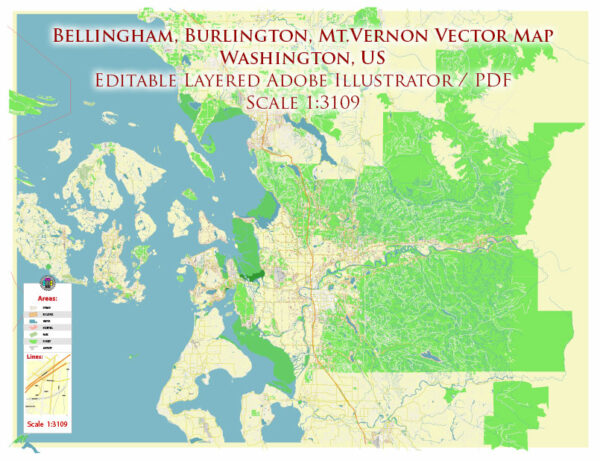Bellingham, Washington, is a city located in the northwestern United States, in the state of Washington. The history of Bellingham is rich and varied, with a focus on its development as a port city, its role in the timber and fishing industries, and its cultural and social evolution.
- Indigenous Peoples: Before European settlers arrived, the region where Bellingham now stands was inhabited by indigenous Coast Salish peoples, including the Lummi, Nooksack, and Samish tribes. These communities had a deep connection to the land and waterways of the area.
- Early Exploration: European exploration of the region began in the late 18th century when Spanish and British explorers, such as George Vancouver, charted the coastline. The area was eventually claimed by the United States after the Oregon Treaty of 1846 established the boundary between the United States and British North America (Canada).
- Early Settlement: The first permanent European-American settlement in the Bellingham area was established in the mid-19th century. In 1852, Henry Roeder and Russell Peabody established a water-powered sawmill, marking the beginning of the timber industry in the region.
- City Formation: Bellingham’s history as a city is tied to its mergers. In the late 19th and early 20th centuries, the cities of New Whatcom and Fairhaven were significant communities. They eventually merged in 1903 to form Bellingham, which became the largest city in Whatcom County.
- Industrial Growth: Bellingham developed as an industrial center, particularly in the lumber and fishing industries. Timber from the surrounding forests was processed in mills, and the city’s port facilitated the shipment of lumber, coal, and other goods.
- Japanese Community: Bellingham had a significant Japanese community that played a vital role in the fishing industry. Tragically, during World War II, many Japanese-Americans were forcibly interned, leading to the decline of this community in Bellingham.
- Environmental Awareness: The environmental movement gained momentum in the 20th century, and Bellingham became known for its commitment to environmental stewardship. It played a role in the development of the North Cascades National Park and the protection of local ecosystems.
- Western Washington University: Bellingham is home to Western Washington University, founded in 1893 as a teachers’ college. The university has grown and become a major educational institution in the region.
- Contemporary Bellingham: Today, Bellingham is a vibrant city with a diverse population and a strong focus on outdoor recreation, sustainability, and cultural activities. It’s known for its proximity to natural attractions such as the San Juan Islands, Mount Baker, and the North Cascades.
Bellingham’s history is a reflection of the broader Pacific Northwest’s evolution, from its indigenous roots to its role in industries and its present-day commitment to environmental sustainability and cultural diversity. The city’s beautiful natural surroundings and cultural amenities make it a unique and attractive place to live and visit.


 Author: Kirill Shrayber, Ph.D. FRGS
Author: Kirill Shrayber, Ph.D. FRGS